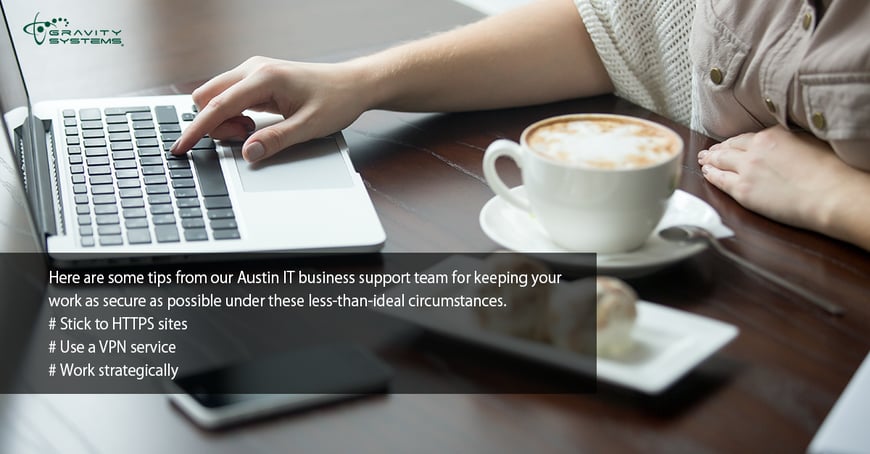It's not all that hard for you or your employees to perform even sensitive business tasks and transactions with a reasonable degree of safety – as long as there's a secure channel for data transfer available. But what do you do when you have no option but to use a public wifi network? Here are some tips from our Austin IT business supportteam for keeping your work as secure as possible under these less-than-ideal circumstances.
Stick to HTTPS sites. Any URL that doesn't use either TLS (Transport Layer Security) or a Secure Socket Layer (SSL) certificate can't be considered secure or safe. These systems provide added encryption that helps to protect your connection from the bad guys. You can always tell a secure website because its URL begins with “https” instead of the old, ubiquitous (and vulnerable) “http.”
Use a VPN service. There are a variety of VPN (Virtual Private Network) services that can anonymize your connection by placing you on a shared, scrambled connection to a server based in a different city or even a different country. Using such services can protect your transactions from a type of hacking attempt called a man-in-the-middle attack. Be aware, however, that some public wifi spots may block or otherwise interfere with VPN connections.

Work strategically. Even HTTPS sites viewed through a VPN connection aren't 100 percent bulletproof against the most skilled and determined enemies. If you're working with very sensitive data (financial numbers, Social Security numbers and other information that could ruin your business if it got into the wrong hands), wait until you can get to a more secure connection tool, method or environment.
Play it safe with public wifi, and your business will live to connect another day. Contact Gravity systemswith any questions or concerns you may have!
Realated Post: Security, Privacy, and Mobile Devices: What Your Employees Need to Know




